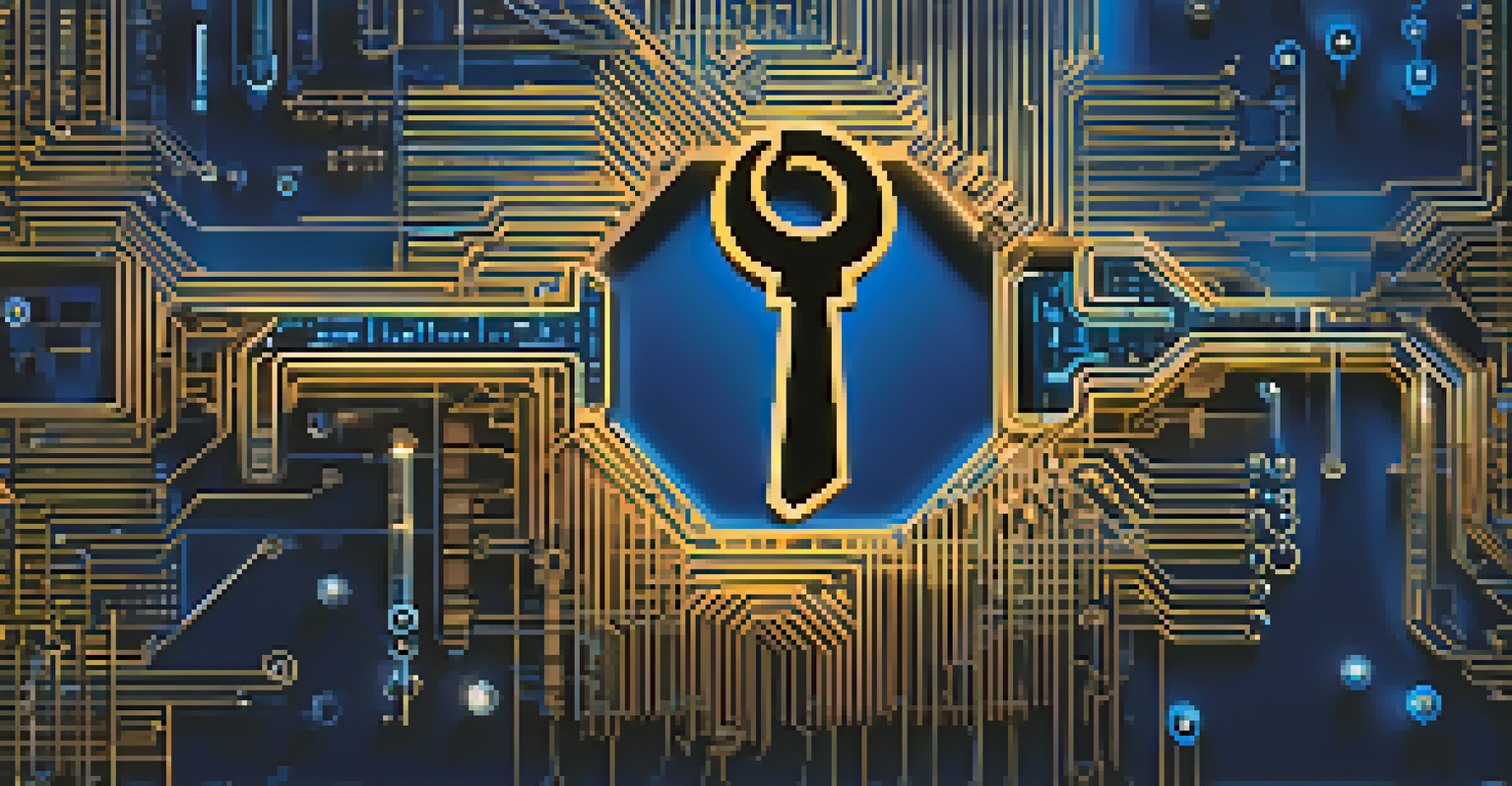Bitcoin Wallets: Safeguarding Digital Collectibles and Assets

Understanding Bitcoin Wallets and Their Importance
Bitcoin wallets are essential tools for anyone dealing with cryptocurrency. They store your private and public keys, allowing you to send and receive Bitcoin safely. Without a wallet, managing your digital assets would be like trying to carry cash without a wallet—risky and disorganized.
Not your keys, not your Bitcoin.
The importance of these wallets goes beyond mere storage; they also provide security. Just as you wouldn’t leave your cash lying around, keeping your Bitcoin in a wallet prevents unauthorized access. This is crucial, especially given the rise in cyber threats targeting digital currencies.
Moreover, understanding the different types of wallets can help you choose the right one for your needs. From hardware wallets that resemble USB drives to mobile apps for on-the-go transactions, each offers unique features that cater to various user preferences.
Types of Bitcoin Wallets: A Quick Overview
There are several types of Bitcoin wallets, each designed with specific user needs in mind. Hardware wallets are physical devices offering robust security, while software wallets can be desktop or mobile applications. Choosing the right type depends on how often you plan to transact and your security preferences.

For instance, if you’re a casual user who occasionally buys Bitcoin, a mobile wallet might be sufficient. On the other hand, if you're storing significant amounts of Bitcoin, a hardware wallet provides peace of mind with its offline storage capabilities. This way, even if your computer gets compromised, your assets remain safe.
Importance of Bitcoin Wallets
Bitcoin wallets are crucial for securely storing and managing your cryptocurrency, preventing unauthorized access.
Additionally, there are web wallets that allow easy access from any device, but they come with their own risks. It’s important to weigh convenience against security when selecting the right wallet type to ensure your digital collectibles remain protected.
The Role of Private and Public Keys in Security
At the heart of Bitcoin wallets are private and public keys, which are crucial for securing your assets. Your public key acts like your bank account number, allowing others to send you Bitcoin. However, your private key is like the PIN to your bank account; it must be kept confidential.
The security of your assets is only as strong as the weakest link in your security chain.
If someone gains access to your private key, they can control your Bitcoin without your consent. This is why safeguarding your private key is paramount—losing it can mean losing access to your funds forever. Just imagine losing your wallet with all your cash; that’s the potential reality without proper security.
To further enhance security, many wallets offer features like two-factor authentication (2FA). This adds an extra layer of protection, ensuring that even if someone has your password, they still can’t access your wallet without a second form of verification.
Best Practices for Securing Your Bitcoin Wallet
When it comes to securing your Bitcoin wallet, adopting best practices can make a significant difference. Start by choosing a strong, unique password that you don’t use anywhere else. This is your first line of defense against unauthorized access.
Next, consider enabling two-factor authentication (2FA) for an added layer of protection. This way, even if someone knows your password, they won’t be able to access your wallet without a second authentication step, such as a code sent to your phone.
Types of Wallets Explained
Different types of Bitcoin wallets cater to various user needs, balancing convenience and security.
Regularly updating your wallet software is also critical, as updates often include security patches that protect against new threats. Think of it like updating your phone’s operating system; it helps protect your data from vulnerabilities.
Recovering Your Wallet: What to Do If You Lose Access
Losing access to your Bitcoin wallet can be a daunting experience, but understanding recovery options can ease your mind. Most wallets provide a recovery phrase, often consisting of 12 to 24 words, that you should store securely. This phrase is your lifeline to regain access if you lose your wallet or forget your password.
If you lose your recovery phrase, the chances of recovering your wallet diminish significantly—akin to losing the key to a locked safe. This is why it’s essential to store the recovery phrase in a secure, physical location, such as a safe or safety deposit box.
Additionally, some wallets offer backup options to help you restore your wallet under various circumstances. Familiarizing yourself with these options before you encounter issues can save you a lot of stress down the line.
How to Choose the Right Bitcoin Wallet for Your Needs
Choosing the right Bitcoin wallet can feel overwhelming with so many options available. Start by evaluating your needs: Are you a frequent trader or a long-term holder? Your usage patterns will influence whether you need a hot wallet (connected to the internet) or a cold wallet (offline storage).
Consider factors such as security features, ease of use, and compatibility with different devices. A wallet that integrates seamlessly with your existing devices can streamline your experience and make transactions more convenient.
Security Best Practices
Adopting best practices such as strong passwords and two-factor authentication is essential for securing your Bitcoin wallet.
Lastly, look for reviews and recommendations to gauge the reliability of a wallet. Just as you would check reviews before purchasing a product, gathering insights from other users can help ensure you choose a wallet that meets your expectations.
The Future of Bitcoin Wallets and Digital Asset Security
As the world of cryptocurrency evolves, so do the security measures surrounding Bitcoin wallets. Innovations like multi-signature wallets, which require multiple keys to authorize a transaction, are becoming increasingly popular. This adds an extra layer of security, especially for businesses managing large amounts of Bitcoin.
Furthermore, the integration of biometric security features, such as fingerprint or facial recognition, is enhancing user security. These methods are not only convenient but also provide a higher level of protection against unauthorized access.

Looking ahead, we can expect ongoing advancements in wallet technology and security protocols. Staying informed about these developments can help you better safeguard your digital collectibles and assets in this ever-changing landscape.